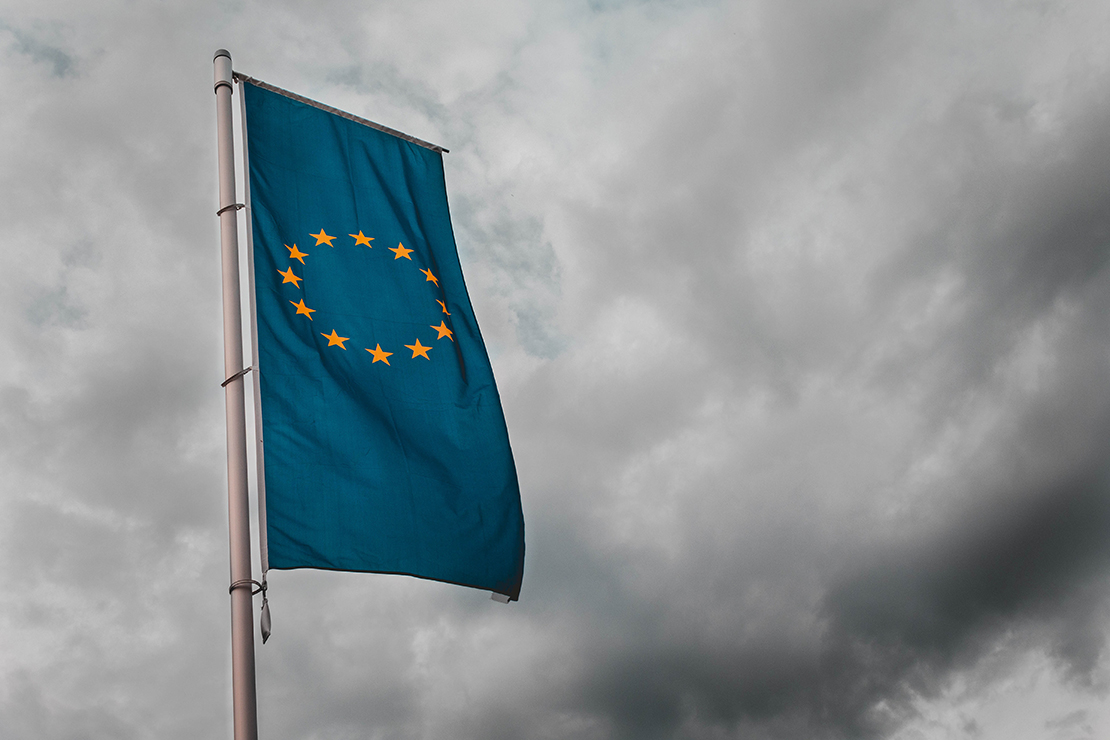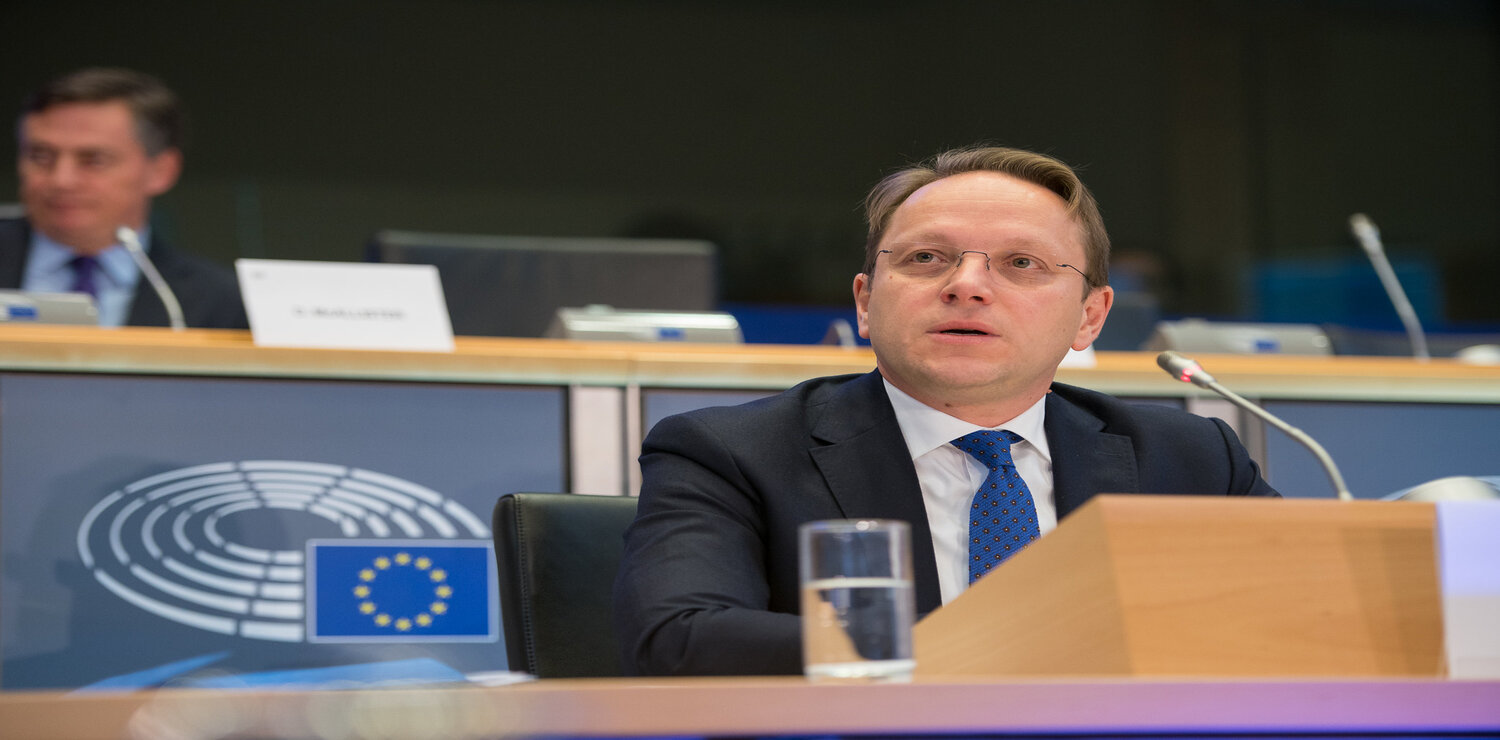Authors

Alejandro Esteso Perez
European integration and enlargement issues, political relations with EU Member StatesOn October 6th, European Commissioner for Neighbourhood Policy and Enlargement Negotiations Olivér Várhelyi presented the 2020 Enlargement Package and the European Union’s (EU) Economic and Investment Plan for the Western Balkans. During a hasty session at the European Parliament Committee on Foreign Affairs, Commissioner Várhelyi broke down the elements of what has already become a yearly snapshot of the political and social state of affairs in Albania, Bosnia and Herzegovina, Kosovo, Montenegro, North Macedonia, Serbia, and Turkey.
The Enlargement Package, made up of a general Communication and seven detailed individual Country Reports, was long overdue. Although traditionally released in the spring, the globalCOVID-19 outbreak did not allow for the Package to be presented in due time—most likely owing to the fact that institutional workforce and resources had been swiftly redirected towards efforts to counter the effects of the pandemic. Adding to the uncertain outcomes COVID-19 was expected to bring about in the countries assessed, the premature release of the Package would most probably not have reflected the emerging potential political and social adjustments in an accurate way.
A much awaited Economic and Investment Plan for the Western Balkan Six (WB6) countries was also officially presented at the session. This Plan was the third and final objective in the EU’s renewed enlargement strategy for 2020, following the successful implementation of a revised enlargement methodology in February and the launching of Albania’s and North Macedonia’s EU accession negotiations in March. Commissioner Várhelyi announced the allocation between 2021 and 2027 of up to €9bn in funds for flagship initiatives and investments channelled through the Instrument of Pre-accession Assistance (IPA) III. A sustainable transport system, clear energy, a green transition, digital economy and human capital were identified as the key areas the Investment Plan will focus on.
Moderate tension had been mounting ahead of the release of the 2020 Enlargement Package, but especially ahead of the thorough Country Reports. The WB6, found at different stages down the path towards becoming full-fledged members of the EU, are no strangers to the challenges and demands entailed in the process of enlargement. While some, like North Macedonia, have remained eternal bidders since the early 2000s, others’ accession endeavours, like Kosovo’s, started hardly a few years ago. Against this backdrop, and not least given the out-of-the-ordinary circumstances COVID-19 was expected to bring about, uncertainty seemed to reign supreme.
The first element of this year’s Enlargement Package was its general Communication, a short but all-encompassing report on all countries assessed.[1]Besides modest rejoice over a few areas where minor progress had been found, the report painted a very bleak picture for the accession hopes of the WB6. Little to no progress had been made over the past year to fight corruption, while efforts to protect freedom of expression had hardly increased. Serbia had lacked the guarantees for free and fair elections, while in Bosnia and Herzegovina the push for an independent judiciary had stagnated and legal shortcomings around political party funding persisted in Montenegro. The Communication acknowledged a series of economic challenges hindering these countries from reaping the full benefits of their potential—so as to close a much worrying gap with the EU, whose GDP levels stand more than 50 percent above. High unemployment rates, a widespread informal economy, low female labour market participation and an alarming brain drain are all major contributors to the region’s sluggish economic development. COVID-19, as expected, played its role to further worsen this trend.
For Kosovo, its individual Country Report confirmed, the picture was not any better.[2]The most recent and very turbulent political and social developments—including a contested election, nerve-wracking coalition negotiation rounds, a successful no-confidence vote, the handling of a pandemic, and the resumption of talks with Serbia—did not contribute to a smooth implementation of the reforms and measures that should align the country with EU standards. In the words of Commissioner Várhelyi, “[i]n Kosovo, the political context over the last year has been volatile and not been favourable to making progress on EU-related reforms”.
According to Kosovo’s Country Report, very little progress has been made over the past year in the most crucial realms of reform. The development of a well-functioning judicial system stands at a very early stage, with COVID-19 having limited the holding of court hearings and with an ever-increasing backlog of cases. The investigation and prosecution of cases involving high-level corruption and organised crime was poor, revealing weak efforts against impunity—to which parliamentary obstruction of the Anti-Corruption Strategy and Action Plan for 2018-2022, adopted but never approved, has barely contributed. The Kosovo Assembly, the Report states, has failed to become a space for political discussion and representation, and has lacked determination in its legislative activity owing to its recurrent lack of quorum. Underrepresentation of women and non-majority groups in political campaigns, government positions, senior positions in the civil service and as Members of Parliament remains a major challenge, and the development of a strong public administration that supports and underlies the implementation of cross-cutting reforms is of utmost need.
As a potential candidate for EU accession, Kosovo is far from achieving full alignment with the Union’s prerequisites. The commitments enshrined in its European Reform Agenda (ERA), and now in its recently-adopted ERA II, have fallen very short as far as effective implementation is concerned. The Agenda is an integral part of Kosovo’s Stabilisation and Association Agreement (SAA) with the EU, and it must be complied with if the country wants to move towards official EU candidate status in the upcoming years.
This, however, will never be reached without a determined and
unequivocally reform-oriented political leadership. It is an urgent duty for
Kosovo’s institutions and successive governments to work towards building
overarching parliamentary majorities that will allow for broad agreements and
swift political, economic and social reforms. Rhetorical confrontation and
ideological blabbering—which this year we have seen an awful lot of—will not
contribute to the country’s success to this end. Kosovo’s future lies within the
EU, and it is up to its political representatives, institutions and bureaucrats
to finally wrap their heads around it before hope runs out.
Share article
Related Espresso Insights
March 4, 2024
Espresso.Insights
Passport Hangover: What’s next after Spain’s Kosovo breakthrough?

January 16, 2023
Espresso.Insights
Recognized but not supported: Hungary's stance on Kosovo's EU bid

Latest Publications
April 8, 2024
Policy Analysis
Reflecting on the Third Year of Kurti II: Setbacks and Achievements in Rule of Law, Public Administr ...
March 22, 2024
Policy Analysis
Lost, “in the Twilight Zone” Rebutting the Court’s Blunder
January 31, 2024
Policy Analysis






